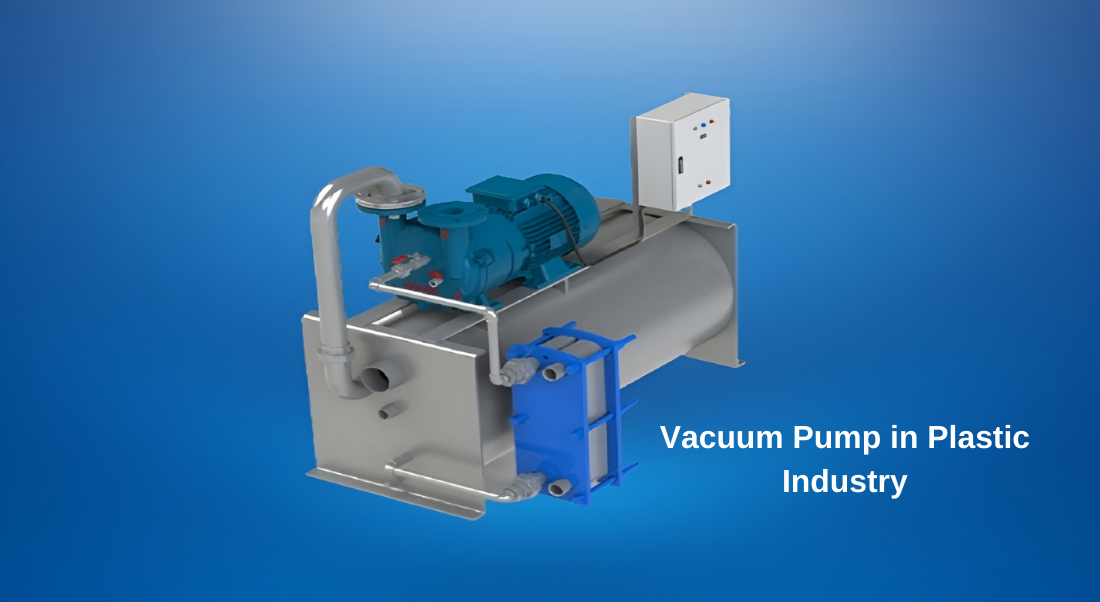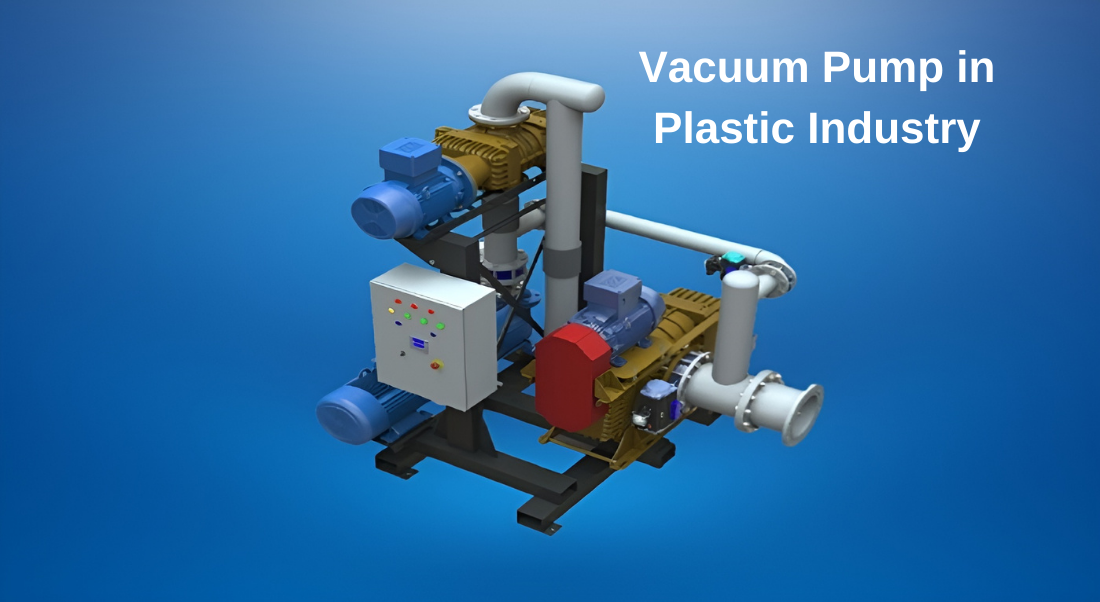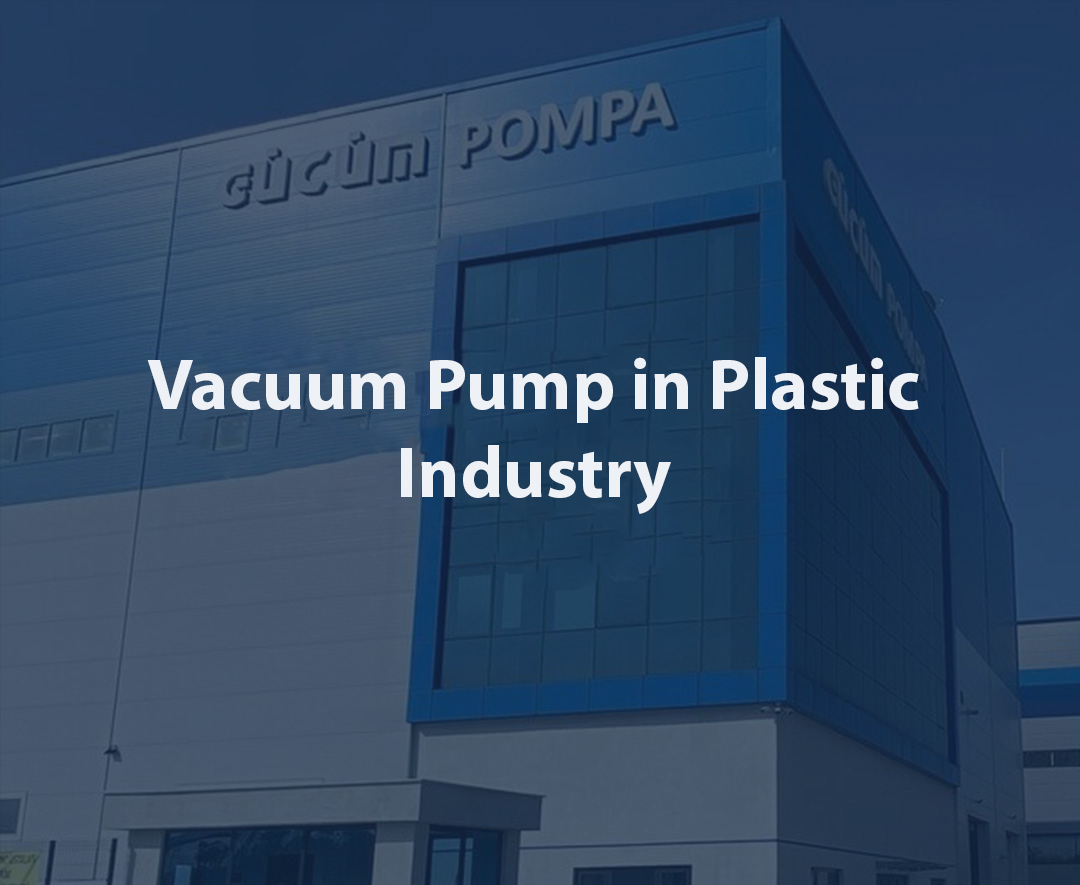Vacuum Pump in Plastic Industry
Table of Contents
- What Functions Do Vacuum Pumps Serve in the Plastic Industry?
- What Is the Role of Vacuum Pumps in Plastic Production?
- What Should Be Considered When Selecting Vacuum Pumps in the Plastic Industry?
- In Which Plastic Processing Operations Are Vacuum Pumps Used?
- How Is Maintenance of Vacuum Pumps Done in Plastic Production?
- What Determines the Performance of Vacuum Pumps in the Plastic Industry?
- What Are the Advantages of Vacuum Pumps for Plastic Manufacturers?
What Functions Do Vacuum Pumps Serve in the Plastic Industry?
Vacuum pumps in the plastic industry serve important and versatile functions. These pumps are used at various stages of plastic production to enhance productivity. Firstly, vacuum pumps assist in removing air bubbles before plastic materials are poured into molds. This ensures that products have a more homogeneous and higher quality structure. Secondly, vacuum pumps help achieve desired results by creating vacuum during the shaping and packaging of plastic containers. Thirdly, vacuum pumps ensure vacuum during the injection of molten plastic material into molds in plastic injection machines, enabling the production of more precise and higher quality products. Lastly, vacuum pumps can also be used in the recycling process of plastics, playing a significant role in processing recycled plastic materials. All these functions demonstrate the indispensable nature of vacuum pumps in the plastic industry, aiding in the efficient and high-quality execution of production processes.

What Is the Role of Vacuum Pumps in Plastic Production?
Vacuum pumps play a critical role in plastic production and offer significant advantages in various processes. The primary role of vacuum pumps in plastic production is to improve product quality by removing air bubbles during the molding process. During molding, air bubbles inside the plastic material can distort the product's texture or cause surface defects. Vacuum pumps address this issue by creating a vacuum during the molding process to remove these air bubbles. Consequently, the manufactured plastic parts have a more homogeneous structure and meet quality standards. Additionally, vacuum pumps are used in processes like plastic extrusion and thermoforming. In these processes, vacuum pumps eliminate air bubbles that may form during the shaping of plastic material, aiding in producing smoother and properly shaped products. Ultimately, vacuum pumps are essential tools for enhancing quality, optimizing production efficiency, and ensuring desired product quality in plastic production.
What Should Be Considered When Choosing a Vacuum Pump in the Plastic Industry?
There are several important factors to consider when choosing a vacuum pump in the plastic industry. Firstly, the capacity and performance of the pump should be taken into account. It is important for the vacuum pump used in plastic production to have the power and performance to provide the required vacuum levels in the process. Additionally, durability and longevity of the pump should also be considered. Selecting a durable and robust vacuum pump is crucial in the demanding working conditions of the plastic industry, ensuring long-term efficiency. Ease of maintenance of the pump should also be considered. A vacuum pump that is easily cleanable and maintainable can reduce operating costs. Moreover, energy efficiency of the pump is also an important factor. Choosing a vacuum pump that consumes less energy and has less environmental impact can reduce operating costs and is important for sustainability. Finally, the reliability of the pump manufacturer and the customer support provided should also be taken into consideration. A proper selection considering all these factors ensures efficient and successful progress of plastic production processes.
Which Plastic Processing Operations Use Vacuum Pumps?
Vacuum pumps play a significant role in various processing operations in the plastic processing industry and are used in many different applications. Firstly, vacuum pumps are widely used in vacuum thermoforming processes. Thermoforming involves shaping hot plastic sheets into a mold. In this process, vacuum pumps draw out air inside the mold, allowing the plastic sheet to conform to the mold more effectively and take the desired shape. Secondly, vacuum pumps are also used in vacuum extrusion processes. In this process, as the plastic material passes through an extrusion machine, vacuum pumps remove air and gases from inside the extruder, allowing the material to be shaped homogeneously. Additionally, vacuum pumps are used in processes such as vacuum injection molding and vacuum-assisted resin infusion. These processes enable the production of plastic products with greater precision and quality. Ultimately, vacuum pumps in the plastic processing industry, used in various processing operations, have become an indispensable component for improving product quality, optimizing production efficiency, and reducing operating costs.
How Is Maintenance of Vacuum Pumps Done in Plastic Production?
Regular maintenance of vacuum pumps used in plastic production is crucial for efficient production processes. Maintenance of vacuum pumps ensures their longevity and prevents potential breakdowns. The first step is cleaning the exterior surface of the pump. Dust, dirt, or other residues can negatively impact the pump's performance, so it's important to clean the exterior surface of the pump at regular intervals. Next, the interior of the pump needs to be cleaned and lubricated. Accumulated dirt or oil inside the pump can decrease its efficiency, so regular internal cleaning is essential. The oil level should also be regularly checked, and appropriate oil should be added if it's low. Additionally, the filters of the vacuum pump should be regularly cleaned or replaced. Dirty or clogged filters can affect the pump's performance and lead to malfunctions. All these steps ensure the longevity of the vacuum pump and smooth progress of plastic production processes. However, maintenance procedures can be complex, so it's always safer to consult with a specialist technician or service center.
What Factors Determine the Performance of Vacuum Pumps in the Plastic Industry?
The performance of vacuum pumps in the plastic industry depends on several factors, and when managed correctly, it offers significant advantages in plastic production. Firstly, the power and capacity of the pump are determinants of performance. It is important for the vacuum pump used in plastic production to have the power to provide the required vacuum levels. Additionally, the design and structural features of the pump also affect performance. Vacuum pumps with more efficient and optimized designs provide higher performance and efficiency. Maintenance of the pump also has a major impact on performance. Vacuum pumps that are not regularly maintained or neglected in maintenance can lose their efficiency and increase the risk of failure. Furthermore, the proper installation and connection of the vacuum pump also affect performance. Correct assembly of the pump is important for ensuring vacuum and maintaining consistently high performance. Finally, the environment and operating conditions in which the pump is used are also factors that affect performance. All these factors determine the performance of vacuum pumps in the plastic industry and, when managed correctly, enhance the efficiency and quality of the production process.

What Are the Advantages of Vacuum Pumps for Plastic Manufacturers?
Vacuum pumps offer a range of significant advantages for plastic manufacturers and play an indispensable role in the plastic production process. Firstly, vacuum pumps improve product quality by removing air bubbles in plastic production, resulting in more homogeneous and flawless products. Additionally, vacuum pumps facilitate the shaping of products by quickly and effectively creating vacuum in plastic molding processes. Moreover, vacuum pumps can be used in plastic extrusion processes to assist in shaping the material more homogeneously. Another advantage of vacuum pumps is energy efficiency. Vacuum pumps that consume less energy and have less environmental impact reduce operating costs for plastic manufacturers. Furthermore, the low maintenance requirements of vacuum pumps reduce operating costs and production downtime, thus increasing production continuity. Finally, vacuum pumps can be used in plastic recycling processes, facilitating the processing of recycled plastic materials. All these advantages demonstrate that vacuum pumps are an indispensable tool for plastic manufacturers and help improve their efficiency.
